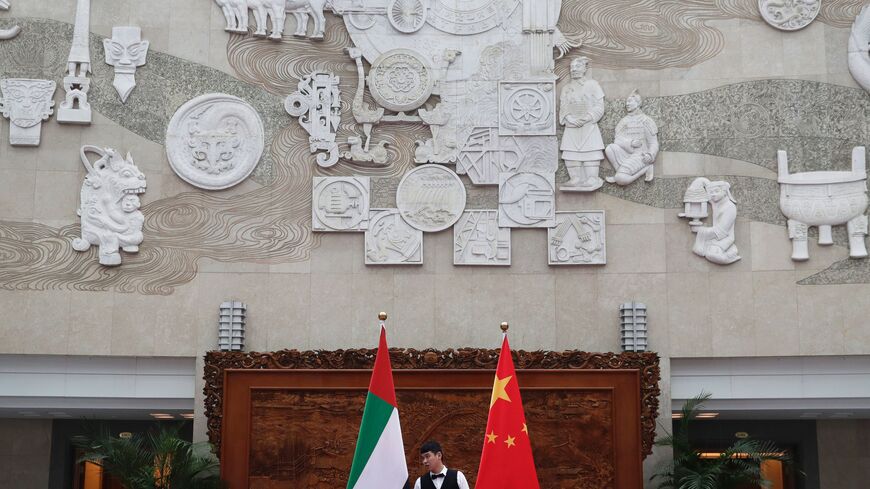The economic growth potential of the Middle East-China trade corridor is strong due to Beijing's "pro-growth policies" and the region's "ambitious economic transformation programs," according to Stephen Moss, HSBC’s regional chief executive officer for the Middle East, North Africa and Turkey.
Moss made the comments at a briefing at the bank’s UAE headquarters on Thursday. The event was organized by the bank and the UAE-China Business Council, which represents Chinese enterprises registered in the Emirates.
“The Middle East is a growth region for the group, and China’s pro-growth policies and the Middle East’s ambitious economic transformation programs offer significant opportunities for our clients across a broad range of sectors, whether in international trade, investment, tourism, technology, infrastructure or energy transition,” Moss said.
China’s Ambassador to the UAE Zhang Yiming was also at the briefing, which saw the attendance of more than 100 representatives from Chinese companies with operations and interests across the MENA region.
“As the UAE stands as China’s second-largest trading partner in the Arab world and the largest investment destination, there is significant potential for further cooperation between the two countries,” Yiming said.
“Chinese-based enterprises have displayed keen interest in expanding into the UAE and Middle Eastern markets, and we aim to encourage even more Chinese companies to invest and start businesses in the region.”
China’s influence in the region is growing both politically and economically. For example, Beijing recently brokered a detente between Iran and Saudi Arabia, the region’s two biggest rivals. The re-establishment of diplomatic relations was significant because there had been multiple failed attempts for the two long-time foes to reach a rapprochement with Iraq and Oman mediating. China has also made an audacious effort to restart Israeli-Palestinian peace talks, which have been beset by a history of failed negotiations.
China has been extending its reach in the region on the business front, too. In 2021, trade between countries of the Gulf Cooperation Council (GCC) and China surpassed GCC trade with the United States and Europe for the first time, according to IMF figures.
Last year, trade between China and the UAE reached a record high of $99.27 billion, marking an annual increase of 37.4%, according to the Chinese Embassy in the UAE. On Sunday, the UAE signed three agreements with Chinese nuclear energy organizations, and an expert said that Beijing will play a significant role in the Gulf country’s economic diversification away from oil.
Al-Monitor reported on Wednesday that Iran had been increasing its trade with China.
Over the last year, several Saudi businesses, including oil giant Aramco, have made several agreements with Chinese companies as ties between the two countries gain momentum.








